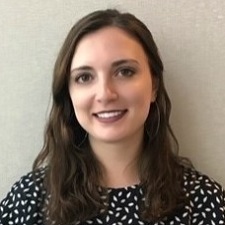Background
In 2016, PDA switched from a traditional program evaluation approach to a principles-focused evaluation approach to guide our evaluation of a statewide initiative to promote access to healthy food and opportunities for healthy living (see Using principles-focused evaluation with a complex, multi-grantee initiative for more details). By the fall of 2020, we realized it was time to revise the principles in collaboration with program staff and partners because the program was operating with new local grantees and staff (a new competitive funding cycle began in 2020) and in a new context (COVID-19 pandemic, renewed focus on racial equity after the murder of George Floyd). Creating and evaluating program principles centers equity by creating agreement among interested parties on the desired results of the work, with equity reflected in both the way the work is done and the result.
Approach
PDA led a 15-month process to revise the principles, including varied methods of engaging state and local program staff and local partners (e.g., two full-day meetings plus monthly 1-hr meetings with state staff; surveys, interviews, and group discussions with local staff; surveys with local partners). These engagement and data collection activities were designed to explore and identify program values that would underlie the new principles, develop draft principles, and gather feedback to refine the draft principles.
Once the new principles were adopted, PDA developed a rubric to be completed by local grantees and their partners to assess how well their work reflected the principles and identify what they could stop, start, or continue doing to better adhere to the principles. State staff helped define the rubric contents and scoring criteria, and a small group of local grantees piloted the rubric before it was released program-wide. The rubric gathered community voice and built-in process use: Local staff and their community partners completed the rubric independently, then met to discuss their responses and reflect on what they could do better.
Results
The new principles (below) were well received by state staff and local grantees. Some local grantees felt that the principles reflected the way they were currently working, while others saw opportunities to better align their work to the new principles. Local grantees appreciated the opportunity to step back and reflect on the process of doing their work by completing the rubric and discussing responses with partners. After completing the rubric, grantees expressed a renewed commitment to sharing and discussing the principles with their partners so that the principles could effectively guide their work. The inclusive development process for the principles and the rubric helped create a sense of shared ownership of the principles and the evaluation.
Principles
SUSTAINABLE AND EQUITABLE INVESTMENTS
The program invests in policies, projects, places, and people to create and sustain equitable, inclusive opportunities for healthy eating and active living.
SELF-AWARENESS AND EMPATHY
Everyone involved in the program prepares to engage in the work by strengthening self-awareness and empathy.
COMMUNITY-LED SOLUTIONS
Community members experiencing health inequities or social marginalization partner with the program to amplify their collective power and lead solutions for their community.
ORGANIZATIONAL PARTNERSHIP
Organizations partner with the program to align with and direct resources toward community members’ vision and priorities.
COORDINATOR RESPONSIBILITY
Program Coordinators approach their relationships and the work with humility, transparency, dependability, and respect for others.
Related Highlights
Using data to identify health equity priorities in a statewide needs assessment
PDA used mapping and key informant interviews to identify populations being missed by a state nutrition program
Evaluation to inform best practices for active transportation planning
PDA conducted a content analysis of transportation planning documents to support the implementation of active transportation components in local and regional planning processes.
Using principles-focused evaluation with a complex, multi-grantee initiative
PDA used a principles-focused evaluation framework to guide our evaluation of a statewide initiative to prevent chronic disease.
See More Highlights
Our Team
Our dedicated and talented team is united by our common desire to improve communities.

Melissa Chapman Haynes
Director of Evaluation

Cat Jones
Evaluator II

Maggie Sullivan
Evaluator I

Harlan Luxenberg
President & CEO

